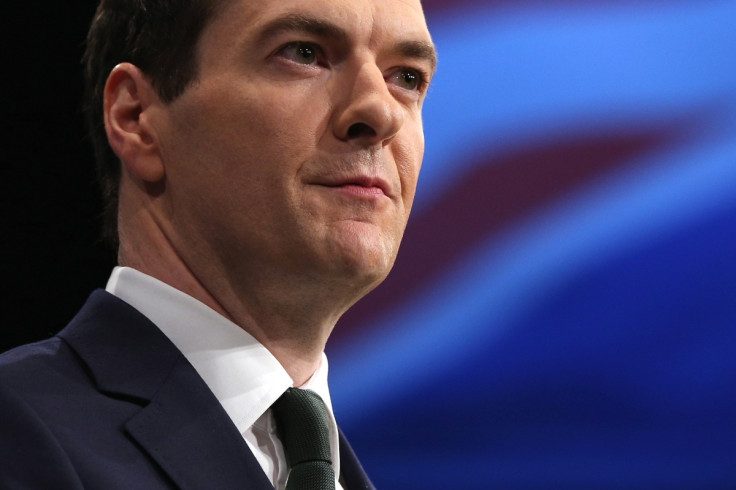Autumn Statement 2015 preview: What can we expect from George Osborne?

All eyes will be on George Osborne as he unveils his joint Spending Review and Autumn Statement to MPs in the House of Commons on 25 November. It will be more than six months after the chancellor and his fellow Conservatives secured a shock victory at the general election and saw their coalition government partners the Liberal Democrats be reduced to just eight MPs.
But even with a majority in the Commons, the Tories faced an embarrassing defeat when peers in the House of Lords rejected Osborne's proposal to curb tax credits after the Institute for Fiscal Studies (IFS) think tank warned claimants would be left on average £1,350 ($2,035) worse off each year.
The decision was undoubtedly an ideological blow to Osborne's and David Cameron's "low welfare, low tax and high wage" mantra as the planned new Living Wage of £9 per hour by 2020 failed to convince the upper chamber. The chancellor is now expected to outline his response to the peers, who the Tories accused of causing a "constitutional crisis", in the Autumn Statement.
However, Osborne does not have too much room to manoeuvre as he has promised to slash £12bn from the UK's welfare spending. Labour veteran Frank Field may provide a solution to Osborne on this tricky issue.
The Work and Pensions Committee chair won Tory backbench support when he railed against Osborne over tax credits. Field has proposed introducing a second earnings threshold for tax credit recipients so anyone taking home less than £13,100 will not be hit as hard by Osborne's cuts. The move, among other things, would see the Department for Work and Pensions (DWP) clawing back the welfare payments from claimants earning more than £13,100 at a faster rate.
Health spending
Elsewhere, the chancellor will unveil his plans for the future funding of the NHS. Time and again the Conservatives repeated their claim that you cannot have "a strong health service without a strong economy" in the run up to the election and the party eventually promised to spend an extra £8bn per year on the NHS.
The government has already given us a good luck of what Osborne will announce on health spending by revealing the top Tory is set to give NHS England £3.8bn in 2016-17 in bid to avoid a potential financial crisis in the health service.
Simon Stevens, the chief executive of NHS England, said: "This settlement is a clear and highly welcome acceptance of our argument for frontloaded NHS investment. It will help stabilise current pressures on hospitals, GPs, and mental health services, and kick start the NHS Five Year Forward View's fundamental redesign of care. In the context of constraints on overall public spending, our case for the NHS has been heard and actively supported."
Devolution
Meanwhile, decentralisation and devolution is another theme that is expected to pop-up in Osborne's statement. The "Northern Powerhouse" has been the chancellor's pet project and similar deals, where regions agree to directly elected majors for combined authorities and extra fiscal powers, are being planned across the country.
"We are likely to hear plans to scale up the Northern Powerhouse ambition, for example increases to the size of budgets devolved, and the potential jobs to be created," said Nick Jones, director of PricewaterhouseCoopers' (PwC) Public Sector Research Centre.
"There is also an opportunity to announce whole lines of departmental spend to be decentralised, for example, in further education. In the further devo deals to be announced, we'd expect at least one of those to be rural.
"For devolution to succeed, and for places to deliver the decentralisation dividend, the relationship between central and local government will also need to change. Central government will need to let go of more and for this, a change in culture and leadership in Whitehall will be needed."
And, of course, Osborne will not forget the deficit. He has promised to run a £10bn surplus by 2019-20 but with the government's 2% commitment to defence spending and keeping the developmental aid target, will the chancellor be able to hold his nerve and, as he puts it, "repair the roof while the sun is shining"?
Make sure to follow @IBTUKPolitics throughout the day and tune into Sky News, BBC Parliament and BBC's Daily Politics show from 11.30am GMT for coverage of Osborne's big announcement.
© Copyright IBTimes 2025. All rights reserved.






















